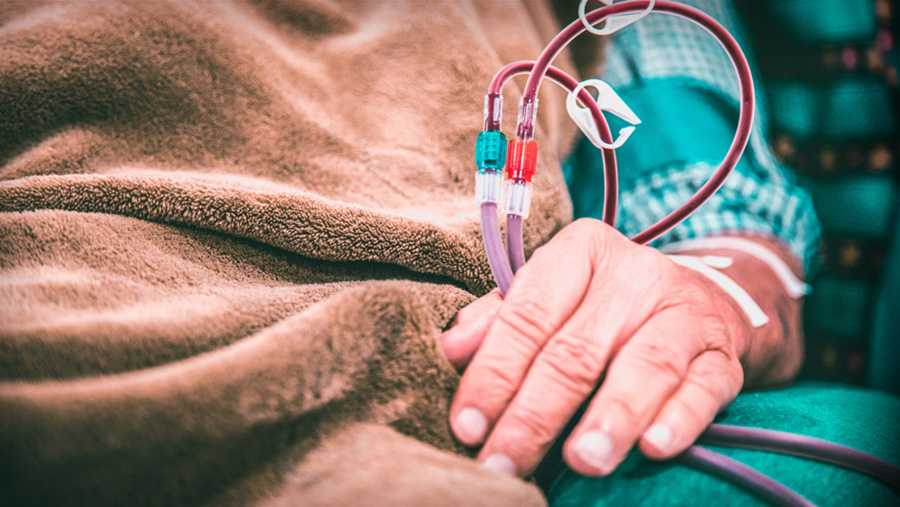
"By digging deeper into the status of certain cells within the immune system, our findings reveal a new strategy to identify individuals at high risk for complications – opening the door to better, more targeted therapies," says the first author of the study, Dr. Omnia Elebyary, who is a graduate student at the cancer centre and the Faculty of Dentistry at the University of Toronto (U of T).
The type of transplant that the research team focused on is called an allogeneic hematopoietic stem cell transplant. It is carried out after chemotherapy or radiation treatment, involves infusing donor blood cells into the patient in hopes of creating a new immune system that can attack and kill any existing cancer cells.
Blood infections are the most common complication for this procedure.
"The presence of an immune cell known as a polymorphonuclear neutrophil has previously been used to monitor the risk of bloodstream infections for patients receiving this type of transplant," says Dr. Michael Glogauer, a clinician investigator at the cancer centre and senior author of the study. "However, little is known about whether the specific functions of these cells or their respective proportions in the bloodstream might provide deeper insights."

(Photo: Getty Images)
Immune cells become pre-activated or "primed" when they come in contact with a foreign substance in the body – such as bacteria or viruses. Once they are in this state they are ready to fight off the invader.
The researchers analyzed blood and saliva samples from 76 patients receiving this transplant. They used the proportion of primed PMNs in the blood five days after the procedure to determine which patients fell into high and low PMN groups.
Patients with more than 10 per cent of their PMNs in the primed state were considered to have high levels. Patients in the low group were more susceptible to infections.
"These findings highlight the potential clinical value of this white blood cell subset in identifying patients at higher risk of bloodstream infections," adds Dr. Glogauer, who is also Interim Head of the Department of Dental Oncology, Ocular and Maxillofacial Prosthetics at the Princess Margaret and a professor in the Faculty of Dentistry at U of T. "This could be particularly important in patients undergoing chemotherapy and in those with bone marrow disorders."
This work was supported by Friends for Life and The Princess Margaret Cancer Foundation.
Read more about the study
This story first appeared on UHN News